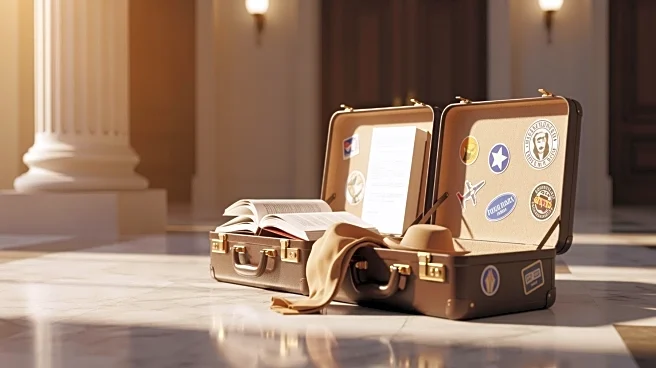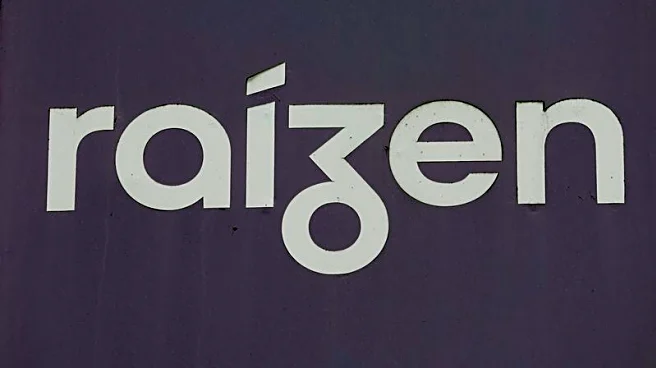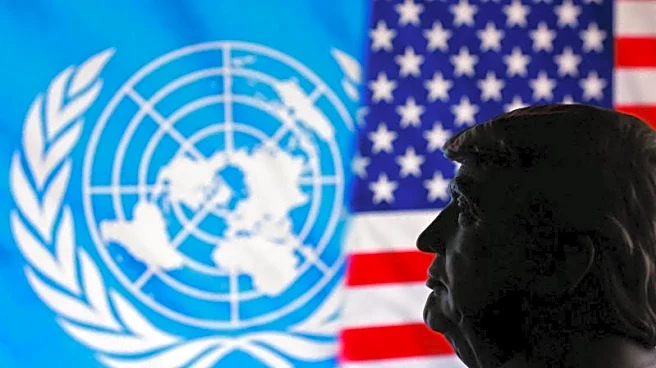What's Happening?
A federal judge has lifted travel restrictions for Mahmoud Khalil, a Palestinian activist, allowing him to travel across the United States as he contests his deportation case initiated by the Trump administration. Khalil, who was previously detained in a Louisiana
immigration facility, sought permission to travel for First Amendment purposes, including speaking at rallies and public events. His lawyer, Alina Das, emphasized the importance of Khalil's ability to address issues of public concern. Despite opposition from government attorney Aniello DeSimone, who suggested Khalil could participate in events telephonically, Magistrate Judge Michael Hammer ruled in favor of Khalil, citing his compliance with release conditions and lack of flight risk. Khalil, a prominent figure in protests against the Gaza war at Columbia University, was arrested by ICE agents in March and is challenging a deportation ruling related to his green card application.
Why It's Important?
The decision to allow Mahmoud Khalil to travel freely is significant as it underscores the balance between immigration enforcement and First Amendment rights. Khalil's case highlights the broader implications of the Trump administration's crackdown on pro-Palestinian activists, raising concerns about the intersection of immigration policy and civil liberties. The ruling may set a precedent for similar cases, influencing how activists are treated under U.S. immigration law. Khalil's ability to speak at public events could galvanize support for his cause and draw attention to the challenges faced by activists in the U.S. immigration system. This development is crucial for civil rights advocates and could impact public discourse on immigration and free speech.
What's Next?
As Khalil continues to fight his deportation case, his attorneys are challenging the immigration judge's decision that he could be deported for not disclosing information on his green card application. Khalil's travel plans must be communicated to U.S. Immigration and Customs Enforcement, as per the judge's ruling. The case may attract further attention from civil rights groups and could lead to increased advocacy efforts. The outcome of Khalil's legal battle may influence future immigration policies and the treatment of activists within the U.S. legal system.
Beyond the Headlines
Khalil's case raises ethical questions about the treatment of activists and the potential chilling effect on free speech. The intersection of immigration enforcement and civil liberties is a contentious issue, with implications for how the U.S. balances national security concerns with individual rights. The case may prompt discussions on the role of activism in shaping public policy and the importance of protecting dissenting voices in a democratic society.

















